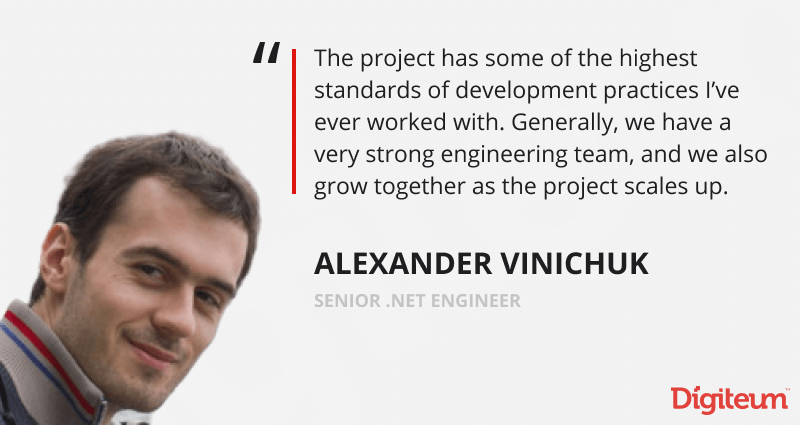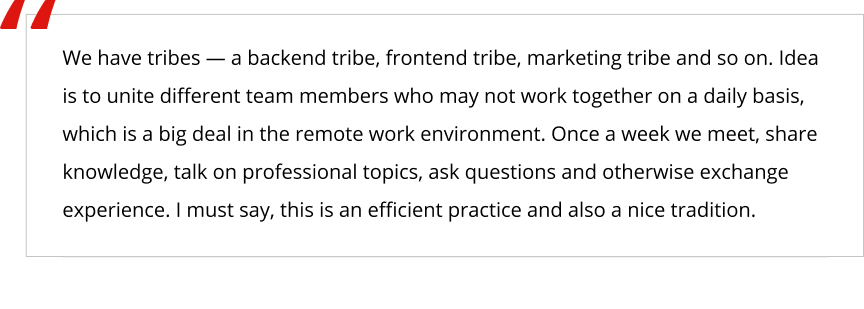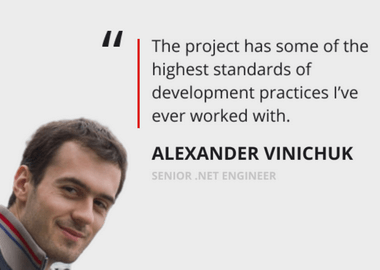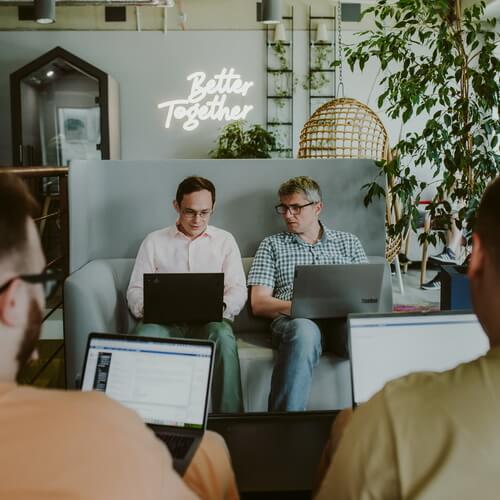Digiteum Talks: Building a Large SaaS Platform for a Barcelona-based Startup
Digiteum augmented the engineering team of a Barcelona-based travel startup before the pandemic was in the picture. In 2019, one of our senior engineers joined the .NET backend team to develop and support a rapidly growing platform for vacation rental management. Little did we know that in 2021 the whole industry will be bracing itself for the moment when traveling becomes a thing again, and businesses will be prepping their services and tech for the never-before-seen influx of travelers.
We talked to Alexander, our senior engineer on this project, to learn what it’s like to build the core of a large SaaS platform, maintain team spirit in a remote working environment, and be a part of a backend tribe, whatever that means. Let’s find out!
Alex, when did you join Digiteum?
I joined the project just a few months before the pandemic, so I had a chance to meet other folks at Digiteum in person at the office before we all switched to fully remote work.
What is your role in the current project?
I’m with the backend team who does rates and connectivity on a platform for vacation rental management. We develop and support the components connected to rate management, features and tools for property managers and, largely, integrations with huge rental platforms like Airbnb. More generally, we build up and expand the system’s microservices-based architecture.

Why did you choose to specialize in backend? Why not frontend or both?
I love working with the backend and deal with databases, caches, server APIs, security concerns, algorithms, architecture patterns, etc. rather than diving in interface development, cross-browser compatibility issues, and search engine optimization.
You work on the very core of the system on this project. What is it like?
It feels good when you deliver something and start getting feedback from customers and colleagues. It’s exciting to see that something you’ve built is working.
Can you give a good example? Has anything exciting happened just recently?
Yeah, actually, not so long ago we’ve detected an issue — increasing memory consumption which was caused by a memory leak and had been unnoticed during testing on team and integration environments. We have tools in place that monitor and spot such abnormalities. So we gathered together to investigate, search for the root of the problem and find a solution. It was challenging but we made it. Thanks to the structural style of our system, we could isolate the problem and eliminate the cause. And it went completely unnoticed by end-users.
Sounds like good teamwork. We know you have a very special team spirit on a project. Can you tell us about it?
We have tribes — a backend tribe, frontend tribe, marketing tribe and so on. Idea is to unite different team members who may not work together on a daily basis, which is a big deal in the remote work environment. Once a week we meet, share knowledge, talk on professional topics, ask questions and otherwise exchange experience. I must say, this is an efficient practice and also a nice tradition.
We have just talked to the engineering manager about how these and many other things make you feel being a part of a team now that everyone works remotely. Like this hoodie, for example. I received a package with a bunch of branded stuff in January just like anyone else on the team. It was a nice gesture.
What about engineering practices?
The project has some of the highest standards of development practices I’ve ever worked with. Generally, we have a very strong engineering team, and we also grow together as the project scales up.
And you manage to keep it up working with a distributed team?
The core team is in Barcelona, and we have people working and providing SaaS development services from Poland and other countries too. For example, our support team is in the Philippines, which is great because we cover more time zones and have people on the project around the clock.
The only downside is, probably, that I have quite a few Russian-speaking colleagues, so I tend to speak English not as much as I’d like to. I should probably start a course. It’s not easy to find extra time with a 9-month-old in the house though.

So true. What about visiting Barcelona? Any gleam of hope to meet the people you work with in person?
We have talked about this before COVID-19 and, probably, will get back to it when the countries start reopening. I have received my second dose of the vaccine so, hopefully, will be able to travel in the nearest future.
The pandemic has brought about many uncertainties. Despite that, the project is now growing at a high pace and we are looking for engineers to join the crew.
Makes sense given that the industry is reviving. Before we wrap it up, can you give us 5 nouns to describe your professional and personal self?
Oh, this is a tough one. Let me think.
Well, first of all, I’d say I’m an introvert (1). I’m less of a perfectionist (2) than I used to be (not sure if it’s good or bad). I value honesty (3), especially at work. And independence (4). I feel comfortable working from home and having a certain level of independence. I also tend to have doubts (5) — it makes me think twice before making decisions.
Thanks, Alex! It was a real pleasure to learn about your work and the atmosphere on your project.
Just a quick reminder, we have an exciting opportunity for engineers who would like to join this fast-growing project. Check the open positions on our Career page or contact our talent manager directly at [email protected] to learn more.




